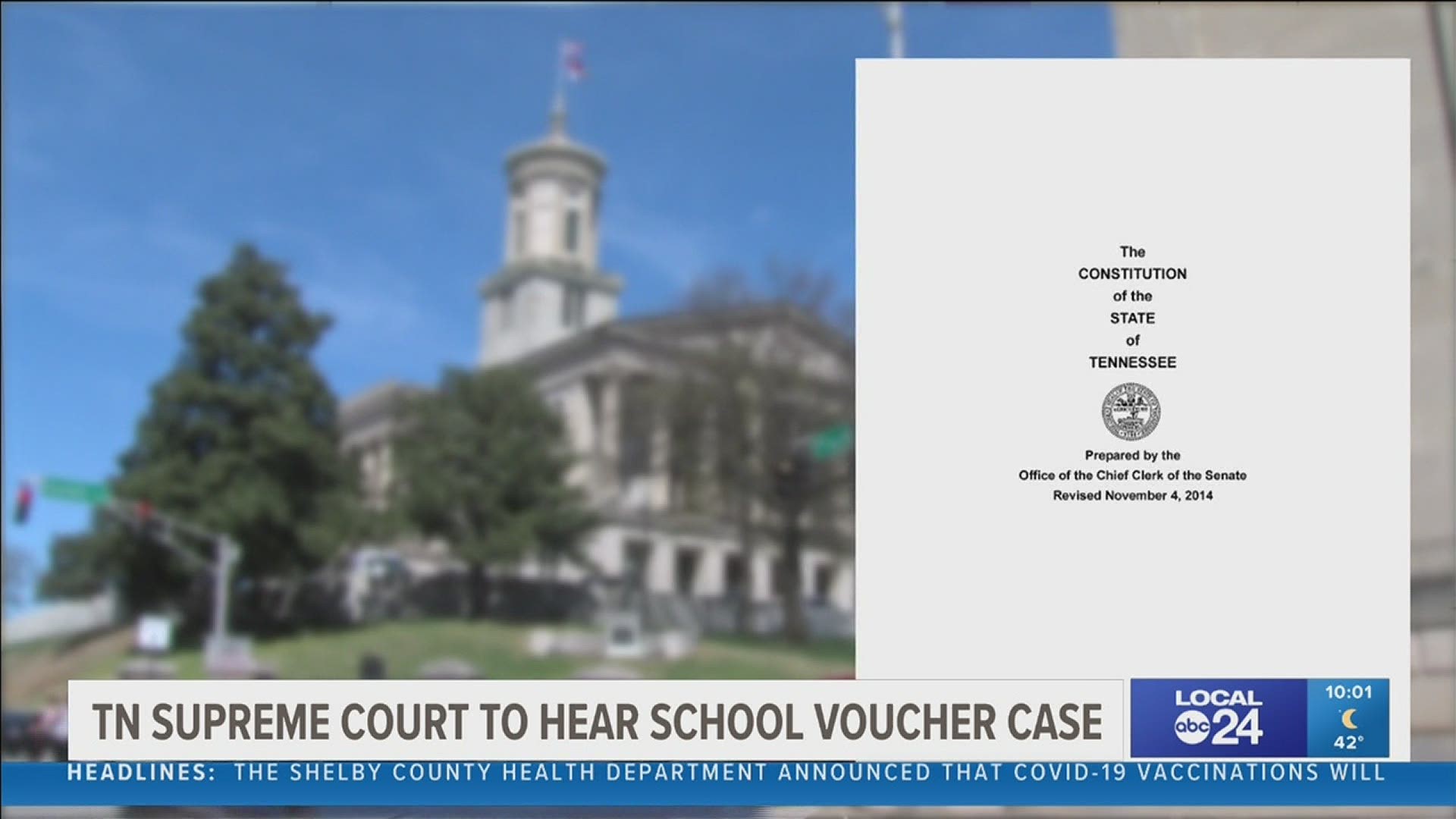MEMPHIS, Tenn — Backers of Tennessee's controversial school voucher program are hoping for a green light from the State Supreme Court.
Lower courts say the so-called Education Savings Accounts are unconstitutional, but if the Supreme Court disagrees families with kids in failing schools would get $7000 for private school tuition.
By definition the state-funded voucher would be available to students from low- and middle-income households in Memphis and Nashville who leave their public or charter school to enroll in a private school.
Brian Kelsey favors the law. He's the attorney for a private school in Frayser and is a state lawmaker who voted for vouchers.
Van turner opposes the law in his role as president of the NAACP Memphis chapter and Shelby County Commissioner.
"What the voucher does is you take public dollars, our tax dollars, use those tax dollars to enable students to go to private schools. When you do that you are subsidizing the private school and the school is private meaning that they decided to be public, they decided not to take public dollars," said Turner.
Additionally, lower Tennessee courts ruled that the law violates the "Home Rule" clause of the TN State Constitution, which states laws must apply to all counties and not selected ones.
In this case Davidson and Shelby.
"Our argument is very simple. The State Constitution prohibits laws aimed at a particular county and a particular county means one county and this law affects 2 counties, Shelby and Davidson, Nashville and in that sense we think this law is perfectly constitutional," said Kelsey.
ESA is a pilot program that was set to affect school districts with failing schools over several years.
"Those are obviously Shelby and Davidson Counties which contain 90% of the schools on our statewide failing schools list," said Kelsey.
"It flies in the face of what we attempt to do in education and that is to attempt to make sure that every child has access to great public schools and so what we do for a select group of students is not fair and equitable to students who can't afford to have that experience," said Turner.

